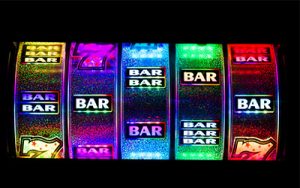Smaller Casinos Are Better
Discussion on whether big casinos are better than small ones in Philadelphia.

Center City District Director Paul Levy and Management professor Bernard Anderson raise the question about whether big casinos will be good for Philadelphia. Both Levy and Anderson are members of the board of the Philadelphia Gaming Advisory Taskforce. The Taskforce was created by Philadelphia Mayor John Street with the aim of giving advice about the casino development in the city. On Tuesday, Levy and Anderson tried to explain their point of view regarding this matter in front of Philadelphia residents and around twenty students.
The discussion began with Levy trying to explain Philadelphia’s gambling context. He pointed out at the recent approval by the Pennsylvania government of slots-only facilities (two of which will be located in Philadelphia), which will host around 5.000 slot machines. He compared the offer of one of these establishments with the Foxwoods Resort Casino, which is the largest casino complex in the world, and which has 7.400 slot machines. Levy said that those slots-only establishments do not suit the city, because the state law is based in tax-revenue maximization. The share from the casinos that the state collects is used to reduce the wage tax in Philadelphia and property taxes in Pennsylvania. Levy thinks that smaller slot venues integrated as a part of other downtown entertainment establishments would be better. These establishments would be located in a specific entertainment area and unlike casinos they would not disturb anyone. Everyone wants casinos, he said, but no one wants them near their home. Levy proposed having a hotel with 500 slots as a smart strategy for Center City.
A Philadelphia resident who lives near the proposed casino site, Hilary Langer, said that she agreed with Levy and would not like to see cars flooding in her neighborhood every day heading to the casino. She said that it would be better to have gaming facilities integrated in downtown entertainment establishments.
Levy also said that having slots-only facilities will not help to increase tourism, for the majority of users would be locals. His point of view was supported by a study carried out but a consulting firm. The survey reported that only 5,5 percent of visitors would stay overnight, meaning that most of clients would be local residents.
Anderson focused on the economic impact of gambling in the state. He pointed out at the potential jobs that would be created and the positive influence on local restaurants or bars. He said that casinos have played a very important role in Philadelphia’s economy throughout many years and their influence on the states welfare is clear.